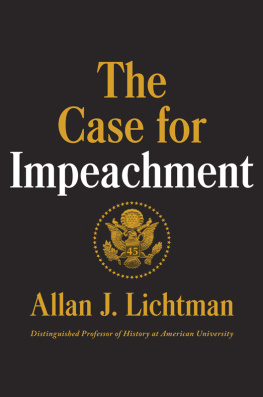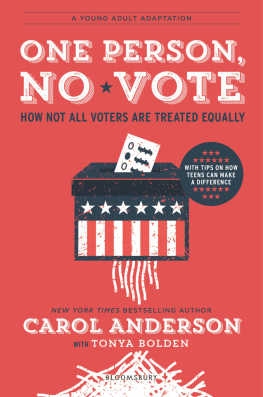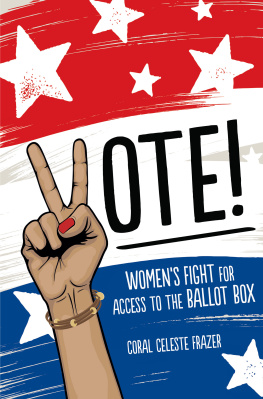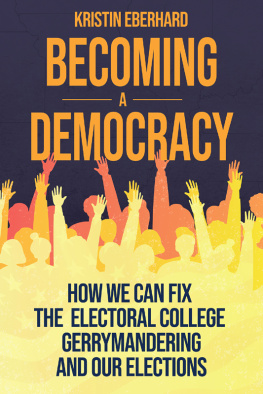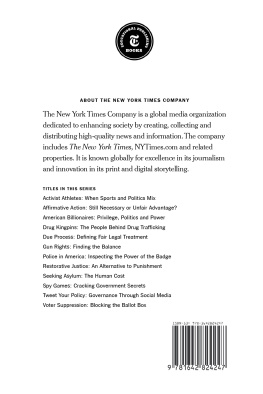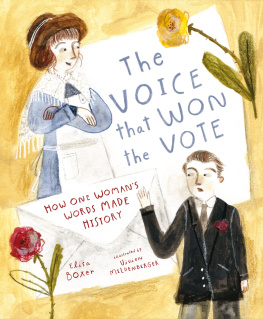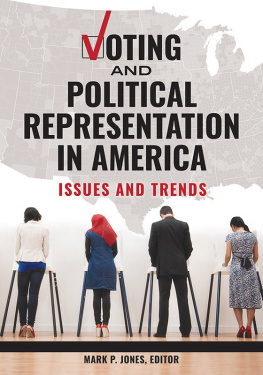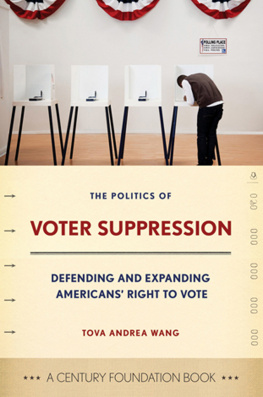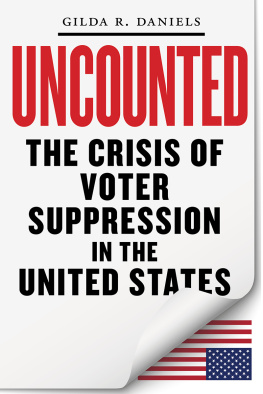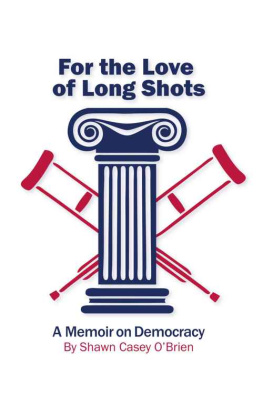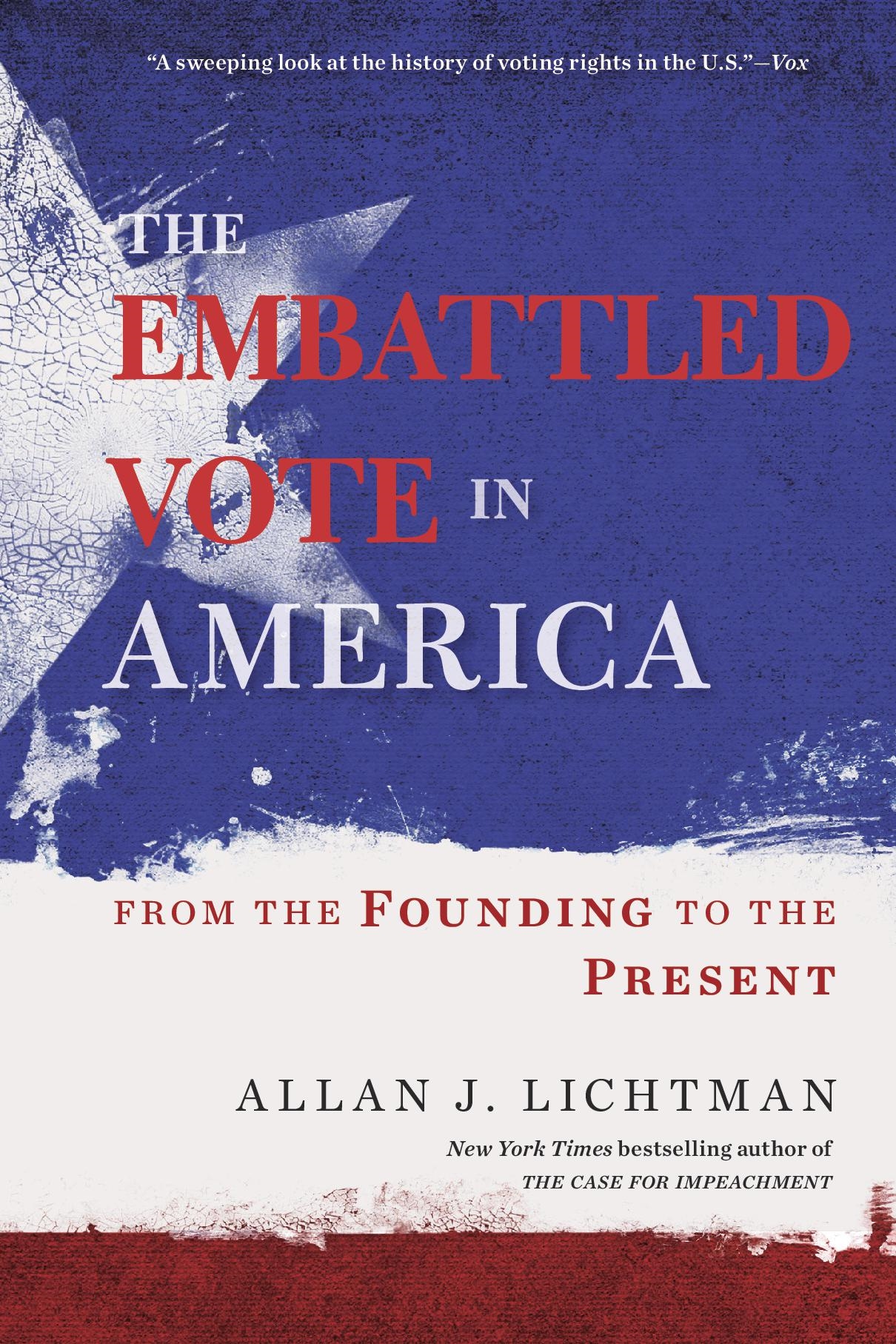Contents
Guide
Pagebreaks of the print version
The Embattled Vote in America
From the Founding to the Present
ALLAN J. LICHTMAN


Cambridge, Massachusetts
London, England
2018
Copyright 2018 by the President and Fellows of Harvard College
All rights reserved
Jacket design: Tim Jones
Background artwork: Courtesy of Getty Images
Inset images: The Gerrymander Monster of Massachusetts, 1812, and How the coloured voter is allowed to cast his ballot in a state where Democrats control the election, 1899, courtesy of the Library of Congress
978-0-674-97236-0 (alk. paper)
978-0-674-98932-0 (EPUB)
978-0-674-98933-7 (MOBI)
978-0-674-98934-4 (PDF)
The Library of Congress has cataloged the printed edition as follows:
Names: Lichtman, Allan J., author.
Title: The embattled vote in America : from the founding to the present / Allan J. Lichtman.
Description: Cambridge, Massachusetts : Harvard University Press, 2018. | Includes bibliographical references and index.
Identifiers: LCCN 2018006882
Subjects: LCSH: SuffrageUnited StatesHistory.
Classification: LCC JK1846 .L53 2018 | DDC 324.6/20973dc23
LC record available at https://lccn.loc.gov/2018006882
To my extraordinary family: Karyn, Sam and Kara, Steven, and Ronnie
CONTENTS
My interest in voting rights is both academic and practical. As a first-year graduate student at Harvard University in 1967, I wrote my seminar research paper on the U.S. Justice Departments enforcement of the Civil Rights Act of 1957, which Congress had enacted to protect black voting rights in the South. For reasons that I still cannot fathom today, John Doar, the assistant attorney general in charge of the Civil Rights Division, gave this twenty-year-old student unfettered access to the records and staff of the divisions Voting Rights Section. I could poke through any files that I found of interest, except for personnel records, and interview the sections attorneys without restriction.
I found to my discouragement that nearly a decade of enforcement by these dedicated, competent, and hard-working lawyers had led to minimal progress toward enfranchising black people in states like Mississippi and Alabama. A weak law, protracted litigation, political meddling, and resistance by local officials and some southern judges crippled enforcement efforts. I was excited, however, by the prospects of renewed progress under the recently enacted Voting Rights Act of 1965.
At the time, of course, I had not an inkling that some fifteen years later, in 1983, I would contribute to progress on voting rights by serving as an expert witness in enforcing the 1965 act. I began work for the same Voting Section that I had studied as a student but eventually branched out into working for civil rights groups, private plaintiffs, and independent redistricting commissions. When justified, I also testified on behalf of state and local defendants in voting rights litigation.
In the 1980s, I mostly worked on challenges to at-large election systems that enabled white voters to control all legislative seats in local governments and to redistricting plans that discriminated against African Americans and later Hispanics. Typically, I relied on my expertise as a quantitative historian to analyze voting patterns to gauge the discriminatory effects of electoral systems in place for state and local governments. I explored whether minorities voted cohesively as a bloc in support of preferred candidates and whether opposition bloc voting by whites usually denied minority voters the opportunity to elect these candidates to public office. I also analyzed remedial plans to assess how effective they were in surmounting obstacles to minority voting opportunities.
By the twenty-first century, the focus of my voting rights work had shifted to the analysis of partisan and racial gerrymandering and new forms of franchise restrictions such as laws that required the presentation of specified forms of photo identification for voting. Rather than consider only the discriminatory effects of voting laws and practices, I began deploying historical methods to determine whether states in their adoption of voter photo ID or other restrictive laws had violated the equal protection clause of the Fourteenth Amendment by intentionally discriminating against minority voters.
To date, I have worked as an expert witness in more than ninety voting rights cases. Nearly every case was fiercely contested, typically by white leaders battling to sustain the privileges that flowed from controlling politics in their states and communities. Discrimination creates winners as well as losers. My most gratifying experiences came in the early years, when our work as experts and lawyers helped local black people in the South defy the white power structure that had kept them subordinate for generations. At the risk of their livelihoods and their safety, African American citizens often joined the Justice Department and civil rights groups as plaintiffs in voting rights lawsuits.
Many decades of courtroom testimony and academic study have confirmed for me that although the players and the issues in voting rights change and evolve over time, the arguments remain familiar and the stakes are very much the same: Who has the right to vote in America, and who benefits from exclusion?
The most significant civil rights problem is voting. Each citizens right to vote is fundamental to all the other rights of citizenship.
ROBERT F. KENNEDY, 1963
On February 18, 1965, advocates for the voting rights of disenfranchised African Americans organized a rare nighttime march in the small town of Marion, Alabama, part of the states black belt, to protest the jailing of James Orange. Prosecutors had charged Orange with contributing to the delinquency of minors after he enlisted students in voter registration drives. Alabama state troopers responded to the protest by beating peaceful demonstrators with billy clubs, sending terrified marchers fleeing into the night. Some sought refuge from police violence in a nearby restaurant, Macks Caf. State troopers followed them into the establishment, however, and one of those troopers, James Bonard Fowler, fatally shot an unarmed twenty-six-year-old black voting rights worker, Jimmie Lee Jackson. Insisting that Jackson had reached for his gun, Fowler claimed self-defense. Eyewitnesses told a different story: they said that Jackson was trying to protect his mother from police violence and that Fowler shot him deliberately, without provocation.
While Jackson languished in a hospital for eight days before dying from his wound, Alabama officials issued a warrant for his arrest for the assault of a police officer. They did not arrest, indict, or discipline Fowler, or even release his name to the public. Fowler remained on the state police force, and a year later he shot and killed another unarmed black man, Nathan Johnson, Jr., during an altercation at the Alabaster city jail. State police officials were quick to purge both killings from Fowlers personnel file but fired him in 1968 for assaulting his white police supervisor. In 2007, as part of a federal-state effort to reopen cold cases from the civil rights era, Alabama prosecutors indicted the seventy-three-year-old Fowler for murder. Two weeks before trial was set to begin in 2010, Fowler pleaded guilty to manslaughter and served five months of a six-month sentence. Fowler died in 2015, fifty years after killing Jimmie Lee Jackson.


